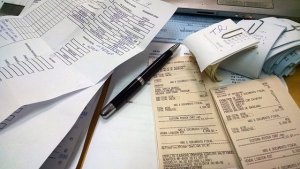There is sometimes confusion among busy tax professionals about what constitutes a bad debt and how a nonbusiness bad debt differs from business bad debt. The below information from the IRS explains nonbusiness bad debt in the following way and offers advice on exactly how to handle it when you are filing your client's tax return.
For Tax Professionals: Nonbusiness Bad Debts Are Deductible
"Nonbusiness Bad Debts - All other bad debts are nonbusiness. Nonbusiness bad debts must be totally worthless to be deductible. You can't deduct a partially worthless nonbusiness bad debt.
A debt becomes worthless when the surrounding facts and circumstances indicate there's no reasonable expectation that the debt will be repaid. To show that a debt is worthless, you must establish that you've taken reasonable steps to collect the debt. It's not necessary to go to court if you can show that a judgment from the court would be uncollectible. You may take the deduction only in the year the debt becomes worthless. You don't have to wait until a debt is due to determine that it's worthless.
Report a nonbusiness bad debt as a short-term capital loss on Form 8949.pdf, Sales and Other Dispositions of Capital Assets, Part 1, line 1. Enter the name of the debtor and "bad debt statement attached" in column (a). Enter your basis in the bad debt in column (e) and enter zero in column (d). Use a separate line for each bad debt. It's subject to the capital loss limitations. A nonbusiness bad debt deduction requires a separate detailed statement attached to your return. The statement must contain a description of the debt, including the amount and the date it became due; the name of the debtor, and any business or family relationship between you and the debtor; the efforts you made to collect the debt; and why you decided the debt was worthless."
Hopefully, the above information straight from the IRS helps clear up any confusion tax professionals might have concerning nonbusiness bad debt. If you have any additional questions about taxes, don't hesitate to comment below and one of the MoneyThumb team will do their best to answer those questions, or at least direct you to the place where you can find your answer.
MoneyThumb PDF Financial File Converters
To make your job simpler when it comes to preparing income tax returns for your clients, MoneyThumb has a suite of tools designed just for accountants and other tax professionals. Using our PDF financial file converters, tax professionals can quickly and seamlessly convert a client's bank statements and other tax-related information into your preferred software program. MoneyThumb actually has PDF designed specifically for QuickBooks and Quicken users.
Make your life and the lives of your clients almost headache-free this tax season, by keeping up with the Rules of Thumb blog and using our PDF financial file converters.





















Add comment